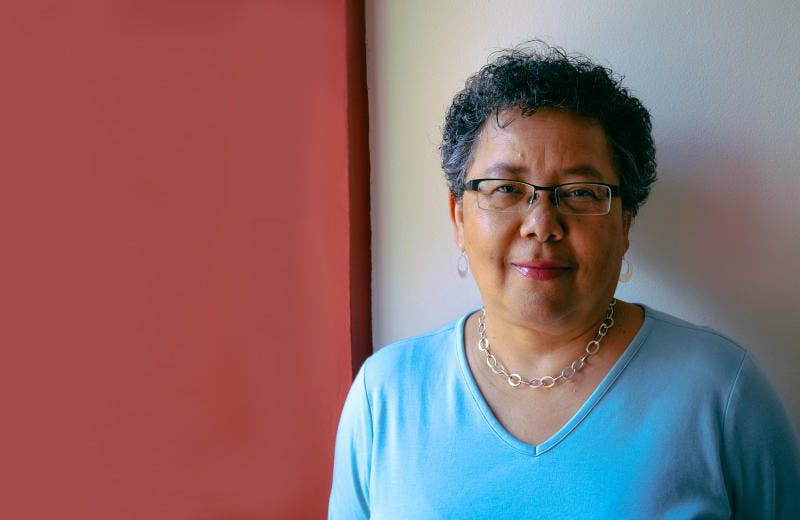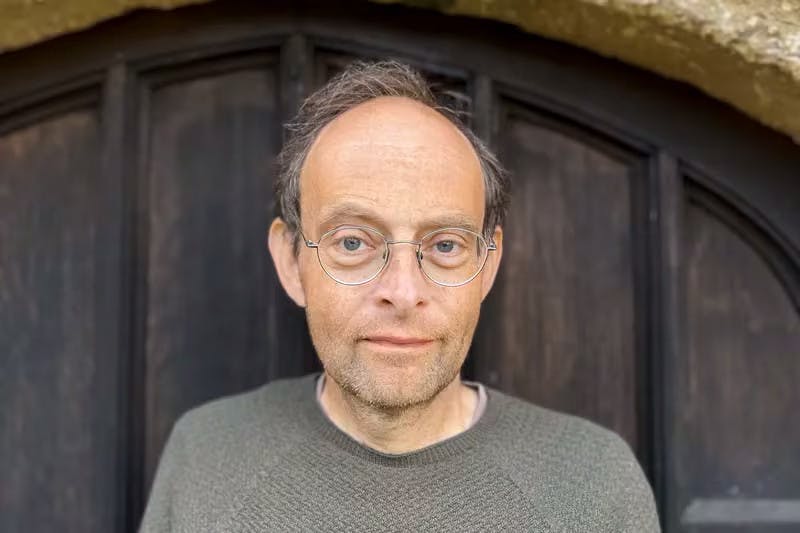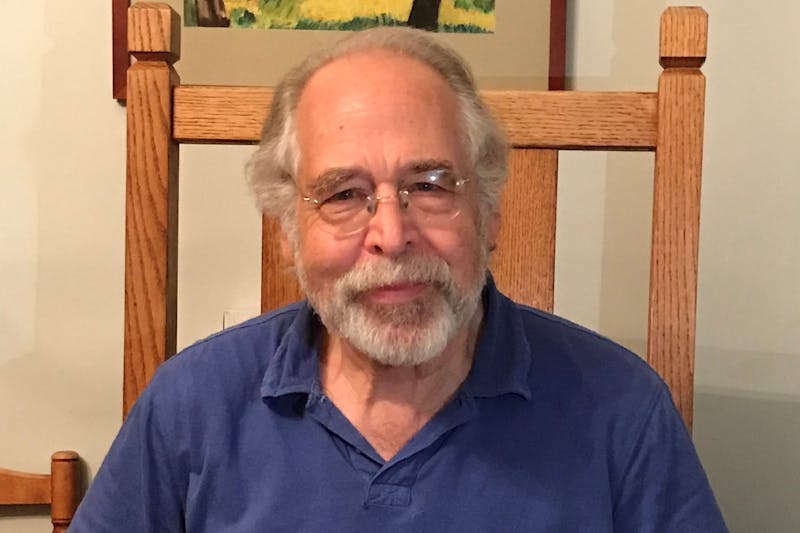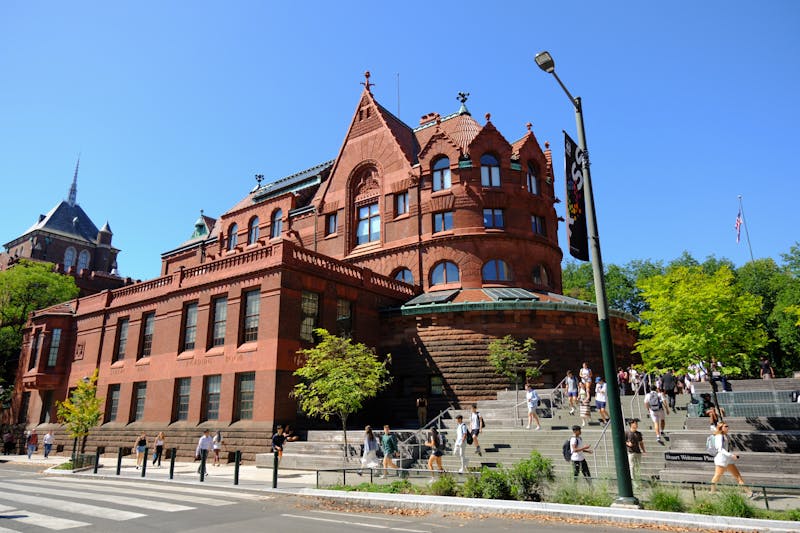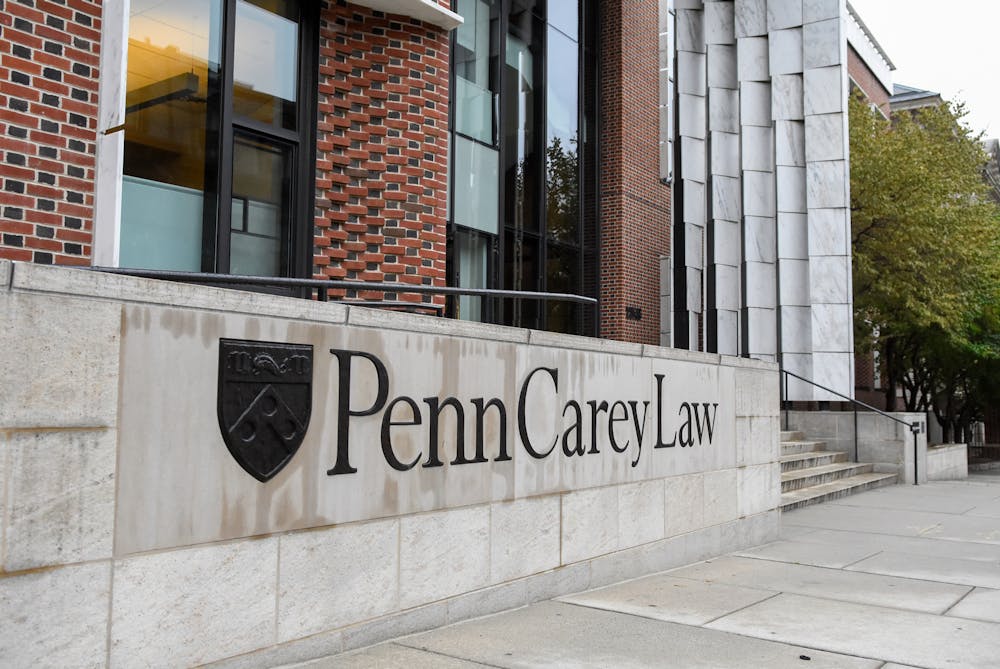
Content warning: This article contains mentions of abuse and suicide that can be disturbing and/or triggering for some readers.
The University of Pennsylvania Carey Law School and several student groups hosted a panel calling for restorative justice following the damaging medical experiments conducted by the late Penn dermatologist Albert Kligman.
The panel examined the legacy of Penn dermatology professor Albert Kligman, who conducted medical experiments on incarcerated individuals at the now-decommissioned Holmesburg Prison without their informed consent. Some victims and their relatives recounted how the experiments changed their lives, calling on Penn to issue an apology and reiterating demands for the University to provide financial compensation and other forms of restorative justice.
Between 1951 and 1974, Kligman tested viruses, fungi, and chemical agents, including asbestos, on hundreds of incarcerated individuals — most of whom were Black — at the prison, which was located in Northeast Philadelphia. Many of the inmates were left with lifelong side effects, including permanent scarring, recurrent rashes, and mental health issues, according to journalist Allen Hornblum’s 1998 book “Acres of Skin,” which exposed Kligman’s medical experiments on the inmates.
The event was a collaboration between groups including the Black Law Students Association and UMOJA — the umbrella organization for Black student groups on campus — and Penn Carey Law. Penn professor Dorothy Roberts moderated the panel and emphasized Penn’s unique positioning to lead “reparative justice efforts” when examining past University-sponsored and sanctioned violence against marginalized communities.
“Penn’s tangible restitution for the Holmesburg Prison experiments, that we hope will ultimately come out of this event, should be a model,” Roberts told attendees. “That’s what Penn should be aspiring to. We’re supposed to be the model university, with the highest values.”
Herbert Rice, an 80-year-old survivor of the experiments, said that he started participating in experiments at age 24 as a means of earning money while incarcerated. Rice said he first participated in the “milkshake test,” where he was required to eat a milkshake and waffle for three meals a day and decided to increase his involvement in the studies three weeks later.
Rice described increasingly disturbing experiments, including a metabolic study in which he was required to ingest pills containing “foreign organisms.” Rice said that he experienced severe psychological changes as a result of taking these pills, causing him to unintentionally lash out at a guard — which landed him in solitary confinement for three days.
“He put me in there for three days, and I thought I was in there for three years,” Rice said. “… You got one meal a day. That one meal consisted of breakfast, lunch, and dinner on that plate, and they would give it to you, and it would collapse, so you had to eat off the floor,” Rice said.
He also detailed vivid nightmares he would have about the experiments, which he said fundamentally changed the way he led his life — even when he was no longer incarcerated. He reflected on how his baggage affected his home life and led him on a path toward substance abuse.
“I brought all this stuff back to my home, to my wife, to my children, to my community, and I was just a damn fool,” Rice said.
Rice also recalled that two of the friends he had made in Holmesburg Prison later died by suicide, pointing to Kligman’s experiments as a contributing factor.
“Kligman, I call him a murderer without a gun. Not [for] what he did to me, but what he did to my friends,” he said.
Rice’s grandson, Ja’Ir Rice, pointed toward the generational impacts of the study on his family, noting that his grandfather and father were no longer in contact. He also expressed disdain for what he described as commerce-driven institutions like Penn that divided his family.
“There’s certain parts of my family now that are dysfunctional because of [the experiments], because of something that was out of his control, and it’s gut wrenching,” Ja’Ir said, “I’m hoping that [things] can be amended while my grandfather’s still here.”
Adrianne Jones-Alston, the daughter of survivor Leodus Jones, echoed those sentiments, reflecting on her father’s participation in the experiments and the “abuse” he brought back to her family. She said that her parents’ ensuing separation led her to run away from home, experience homelessness, violence, and eventually, substance abuse.
“I can’t blame everything on the experiments, but I bet you what, it gave me a jumpstart for that downward spiral in my life,” she said.
Jones-Alston outlined seven demands for the University in an effort to deliver restorative justice to the survivors and their families for the generational effects of the experiments. Among those demands was financial compensation in the form of general support, healthcare funding, and the funding of community and youth programs for inner-city Philadelphia programs.
“They made some [money] — we’re talking billions of dollars — and my daddy’s skin is in those jars,” she said. “Share the wealth — you know, after all, they paid the price.”
The demands Jones-Alston outlined also included a sincere and “personable” apology, transparency on how much money Penn made during the experiments and their byproducts, and comprehensive ethics training across all schools, including a section addressing Penn’s legacy in Kligman’s experiments.
“Penn needs to step up and take care of this, because it’s not going away. My father’s gone, but I’m here,” she said.
Hornblum, the book author, noted Penn’s position as a “powerhouse” in the widespread phenomenon of prison experimentation that gripped the United States in the 20th century.
“[Penn] had become the Macy’s of human experimentation, [in that] anything anybody wanted done could get done here,” he said. “Why? Because I would argue the goal of Dr. Kligman’s operation — commerce, commerce, commerce.”
Hornblum denounced the lack of intervention from city officials at the time. Multiple panelists criticized what was characterized as an insincere and late apology from the city and the University now.
“It’s the city of brotherly abuse or the city of brotherly indifference, because [the experiments] went on in the post-war period for basically a quarter century, and nobody of significance is raising their hand, pointing out, maybe this shouldn’t happen,” Hornblum said.
The Daily Pennsylvanian is an independent, student-run newspaper. Please consider making a donation to support the coverage that shapes the University. Your generosity ensures a future of strong journalism at Penn.
Donate








